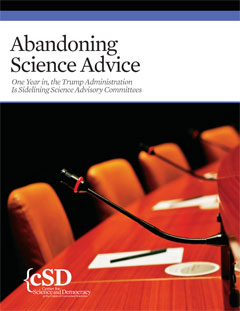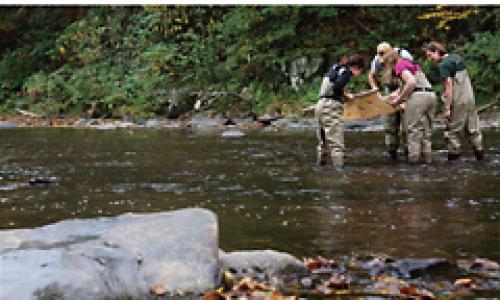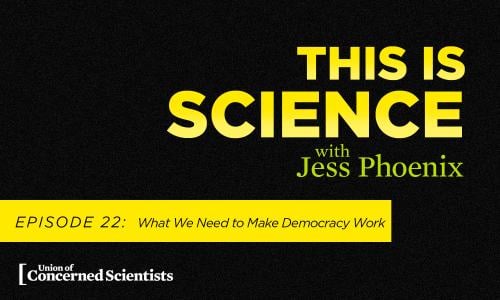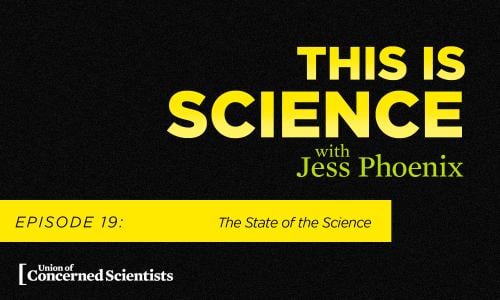New analysis shows that the Trump administration's sidelining of scientific advice is considerably more widespread than previously recognized.
The administration's one-year record shows an unprecedented level of stalled and disbanded scientific advisory committees, cancelled meetings, and dismissed experts.
The consequences for the health and safety of millions of Americans coud be profound.
Why advisory committees matter
Federal science advisory committees are composed of the country's best independent scientists and experts from academia, state and local government, industry, and nonprofits.
They provide advice to decision makers that helps the government respond to complex challenges, from the outbreaks of deadly diseases to environmental and national security threats.
More than 200 scientific and technical advisory committees currently exist to provide science advice across government agencies. Their input is essential for guiding decisions that have the potential to affect the health and safety of millions of Americans, from the safety of the food we eat to the quality of the air we breathe.

Key findings
This analysis reviewed the membership and meeting data of 73 science advisory committees across 24 departments, agencies, and sub-agencies and interviewed more than 30 current and former advisory board members.
It finds that the Trump administration systematically sidelines science to an unprecedented extent, resulting in the neglect of valuable input from the nation's established network of scientific advisory committees. Among the key findings:
- Last year, federal science advisory committees met less often than in any year since the government started tracking in 1997.
- Nearly two-thirds of these committees are meeting less than they are directed to in their own charters.
- Membership on advisory committees decreased 14 percent from 2016. That’s unusual even in a transition year—membership only decreased 7 percent in the first year of the - Obama administration and less than 1 percent in the first year of the Bush administration.
- At the Departments of Energy and Commerce and the Environmental Protection Agency, fewer experts serve on science advisory committees than at any time since tracking began in 1997.
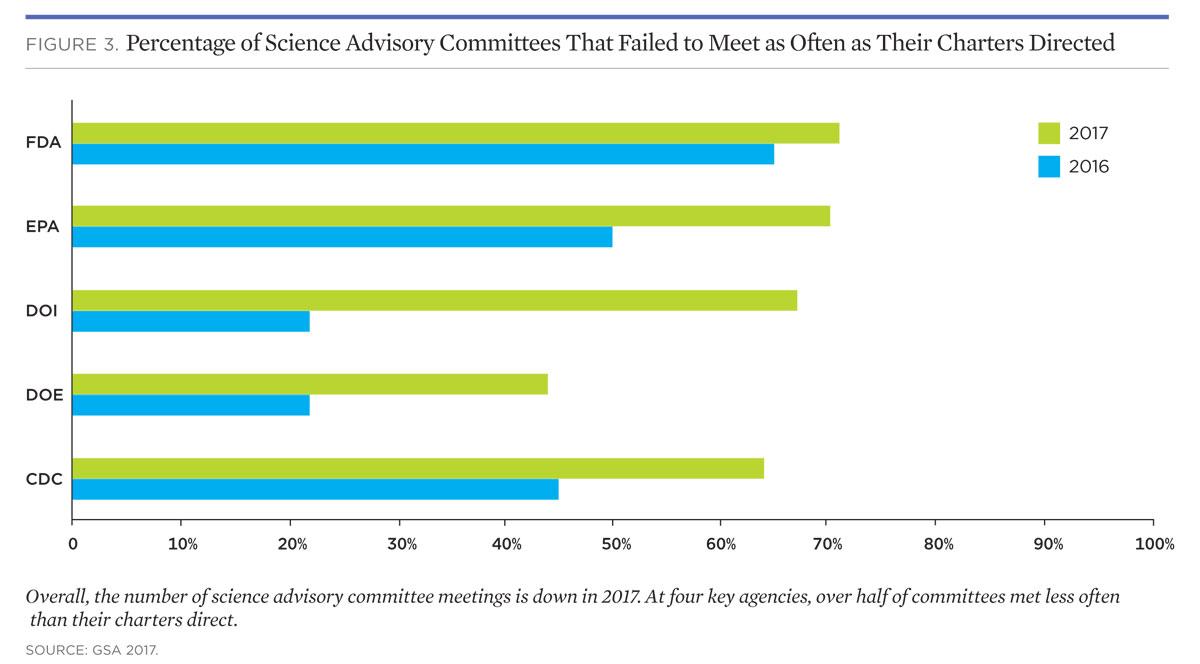
A pattern of neglect, agency by agency
Agencies vary, yet the analysis finds an aggregate pattern of neglect across the 24 agencies surveyed, including the following examples:
The Department of the Interior (DOI): Mandating disregard — A 2017 agency freeze on all advisory committees meant that President Trump's decision to drastically reduce national monuments in Utah proceeded without benefit of Interior Department's expert external advisors.
The Environmental Protection Agency (EPA): Eroding impartial science advice — More than two-thirds of the EPA's science advisory committees failed to meet as often as their charters direct. In October 2017, Administrator Scott Pruitt excluded top scientists from advisory panels by mandating that EPA grant recipients were no longer eligible to serve.
Department of Energy (DOE): Neglect from the top down — The DOE's flagship scientific advisory committee reports no contact from the Trump administration in the past year. The high-level Secretary of Energy Advisory Board has provided regular and essential scientific advice to the agency for nearly three decades.
The Food and Drug Administration (FDA): Idling scientific advisory committees — The FDA's flagship Science Board meeting in December 2017 was by phone, had no agenda, and lasted less than 15 minutes. In December 2017, the FDA disbanded its longstanding Food Advisory Committee, which had operated for 25 years at the agency's only committee dedicated to food-related science policy.
The Centers for Disease Control and Prevention (CDC): Censorship but a mixed picture — CDC made headlines in December 2017 when it received directives prohibiting the use of seven words in agency budget documents, including "diversity," "vulnerable," and "science-based." Nonetheless, the CDC's science advisory committees are among the most active of agencies reviewed.
The Department of Commerce: Sidelining the National Climate Assessment — In August 2017, the department quietly disbanded the Advisory Panel for the Sustained National Climate Assessment, which worked to make climate change research more useful for businesses, the public, and state and local governments.
The Department of Labor: Paralysis by re-evaluation — The Occupational Safety and Health Administration (OSHA) has five advisory committees to help reduce workplace-related deaths, injuries, and illnesses. Four failed to meet in 2017.
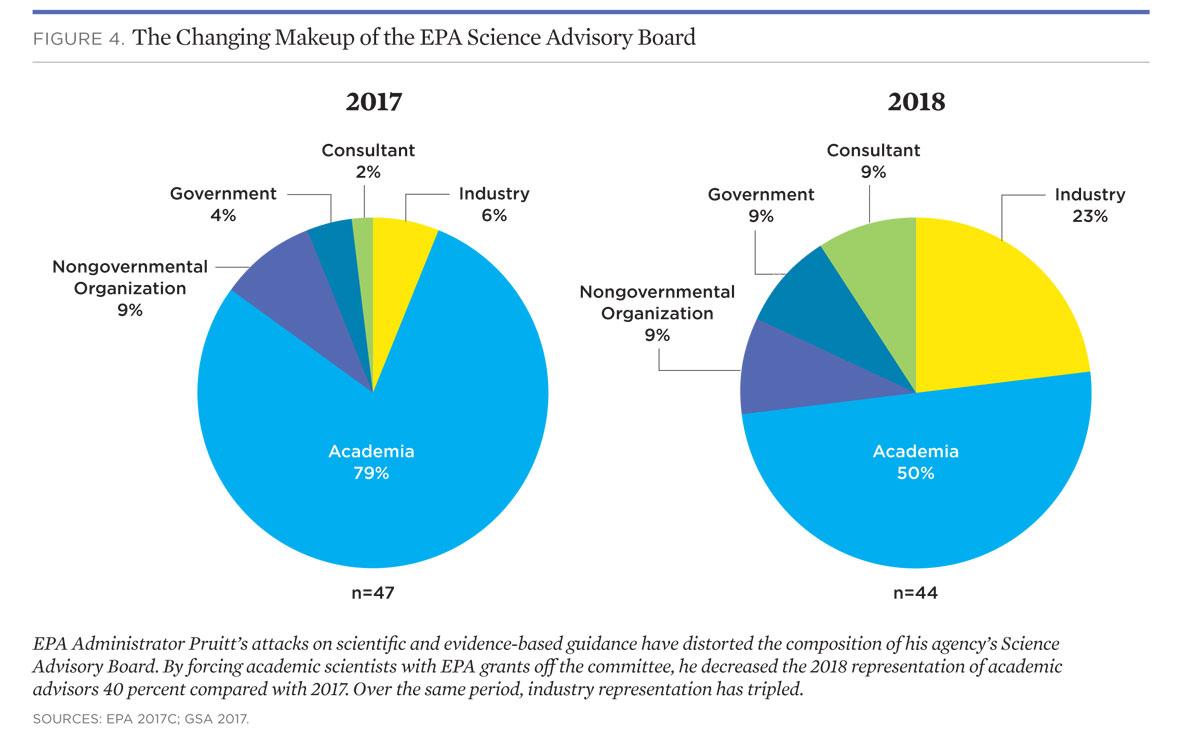
Recommendations
Science advice is crucial to the federal government's ability to make informed decisions on matters that have enormous consequences for public health and safety.
In response to the documented indications of a science advisory system in serious decline, the Union of Concerned Scientists makes three recommendations for immediate action:
- Current and former science advisors should speak out when they perceive that federal agencies and others in the government are sidelining important scientific work and findings.
- The Government Accountability Office should assess whether federal agencies are carrying out the Federal Advisory Committee Act appropriately, especially given EPA Administrator Pruitt’s directive on advisory committee eligibility.
- Congress should hold hearings on the status of science advisory committees throughout the government, with the goal of ensuring that they serve the national and public interest by functioning as directed by law.
